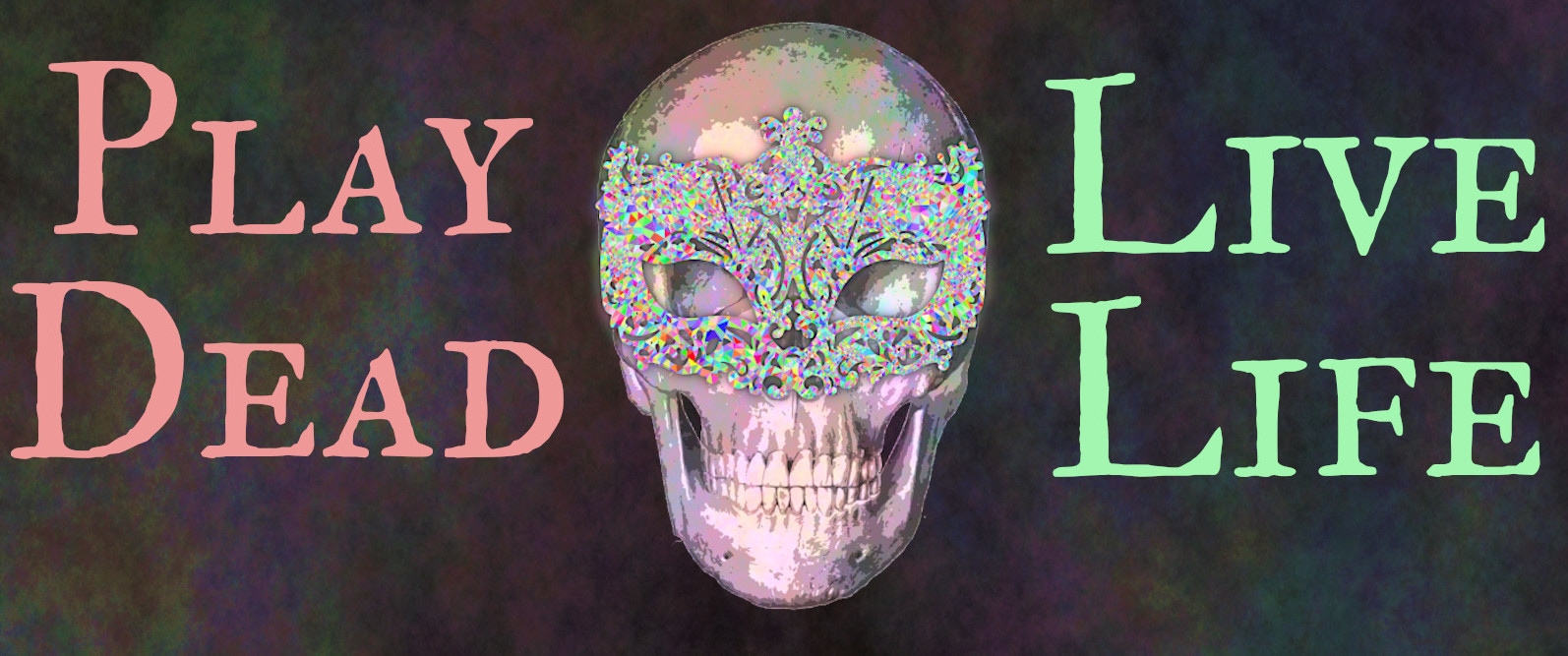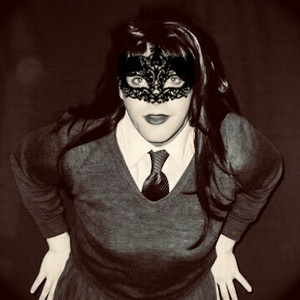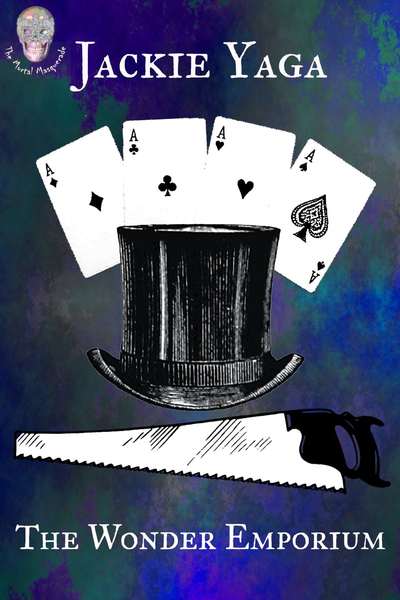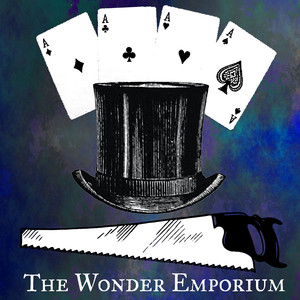I carried on to the sixth form just so I could take a Theatre Studies A-level – since I was going to be a professional performer it made sense to learn everything I could from our respected performing arts department, while I could. Mrs. Kemble let me study male parts for the acting parts of the course, I specialised in lighting and stage effects and learned the principles of direction and stagecraft. Fi was on the same course in the year above me and helped me with some of the theory, while Gary left school at sixteen to work for his Dad. Meanwhile Pete continued to teach me everything else I needed to know about promoting an act and running a business as my own boss. He introduced me to the local magic society, I began attending conventions and won a few prizes in close-up competitions. I got my first paid work soon after that table hopping in restaurants, with that and extra hours in the magic shop I was financially self-sufficient by the time I graduated, ready to leave home and put down a deposit on my own flat.
At first, being openly trans cost me work, especially in the lucrative corporate field. A few bookers told me I could make more money if I performed as a girl (“show a little tit”, said one sexist prick I was happy not to work with). I couldn’t do it, though. I hated my body more than ever, I wanted more than anything to transition fully.
At that time Gender Reassignment Surgery (GRS) was well known, albeit more for male to female than vice versa and then by the crude term “sex change”, mostly in cheap jokes told by bad comedians. The hoops you had to jump through to even be considered for GRS were gruelling, time consuming, stressful and humiliating, followed by the pain and discomfort of the surgery itself. It wasn’t all paid for by the NHS so I had to raise some serious money, giving me even more of an incentive to work hard at my career. Not only had magic given me a way to be who I was inside, it would also fund my transition. I’d been effectively living as a man ever since I left home so there was no problem with that part of the requirements and I was fortunate to have good friends who knew and supported me throughout.
Some people who don’t understand transfolk have asked me why I’d put myself through all that rather than just be a masculine woman. They told me I was attacking feminism and reinforcing gender stereotypes by switching sides. Let me address that:
First of all, you have to understand the difference between sex and gender. Sex is physical, the body you have. Gender is the way you feel inside; some of it is influenced by outside forces and societal expectations, but most of it is fundamental and intangible. For most people the two align, when they don’t you get gender dysphoria.
Like most conditions, the severity of gender dysphoria varies – some can live with it in one way or another, while others, like myself, need to realign their sex in order to restore balance.
This spectrum, incorporating cisgender, transsexual, non-binary and everything in between, is important to understand. Gender nonconformity can be used to challenge arbitrary stereotypes and that is important and valid, but simply cross-dressing will not change your sex or your gender, just like when Gary became my female assistant – for him, it was just a game. For the gender dysphoric it is more than just a game.
Why care about clothes and gender at all? Because society demands gender identity and clothes are the top level expression of that. My boy’s school uniform was the best way I had at the time to feel like myself. It wasn’t a political statement, it was personal, a matter of survival at a time when every second I spent in girl’s clothing filled me with uncontrollable anxiety. When people tell you clothes don’t matter, what they really mean is, “there, cured you, now you can be happy being normal and stop being a problem for everyone. Hallelujah.”. It’s just gaslighting to force someone into an uncomfortable gender expression, then tell them they’re making a big deal out of it. Every openly queer person has heard some variation of “have you tried not being queer?”.
I might have had anti-trans prejudice to deal with, but in my favour was that I was totally committed, motivated to work hard and, if I do say so myself, a very good magician. Having Fi as my assistant for cabaret shows meant she could provide the glamour and femininity so I didn’t have to. I was passing more and more convincingly as male while table hopping, on the occasions I was read I was happy if asked to speak openly about my transition without labouring the point. I even got extra tips from some who found my story inspiring and wanted to show their support. People like honesty from those paid to fool them.
My reputation steadily grew as a performer, then as a writer. As I’d never stopped being a voracious student of magic history I began writing a blog on the subject and submitted articles to magic magazines. All of this combined gave me the credibility to begin self-publishing my own books and routines for other magicians, which we sold from Pete’s shop and online. I was being invited to give lectures and act as an illusion consultant, all of which brought more attention back to Pete’s business, which I was really happy to be able to do for him.
I owed Pete so much, he was a father figure to me, it’s not overly dramatic to say he saved my life when he saw me for who I was and gave me my calling. My actual parents all but disowned me when I formally began my transition; the last words my Mother said to me were that she’d keep praying for me, but that I’d killed her little girl. She told me that God made no mistakes, that I was an abomination against Him. Well, if I ever meet God maybe I’ll ask Him, but I never found Him in that bigoted church they dragged me to. That was when I dropped the last connection with my deadname, changing my surname from Di’anna (which was a bit cheesy anyway) to De’vante, inspired by the great British magician David Devant.
I completed my final round of surgery in my late twenties. I celebrated with Pete, Fi, Gary and a large group of our friends in the magic community. I was finally complete, in the correct body with a successful and respected career to boot. For the next six or seven years I went from strength to strength, I made a few minor TV appearances and there was even talk of me getting my own special at one point, on one of the smaller cable channels. But then, something happened.
Literally, something. All I can remember is those memories coming to an abrupt end and me waking up on this plane of reality.
This was obviously the moment of my death, but I haven’t the foggiest idea of what actually happened. The best theory I’ve heard came from a friend who used to be a doctor – obviously he was dead himself and post-total recall, otherwise we wouldn’t have been discussing it – he said it might have been a sudden heart attack brought about by an undiagnosed condition. Apparently it’s a common cause of sudden death and can strike completely out of the blue. I’d always pushed myself hard in my work, which might have contributed.
On the plus side, death seemed to have completely finalised my transition. I mean, I was a man before, that’s the whole point, but… let me explain.
They can do a lot with GRS and make no mistake, transmen are real men and transwomen real women, but what I’d dreamed of was a birth biological body of my true self, and I had awoken in the post-mortal plane with exactly that. The full significance of this didn’t sink in until after total recall – I couldn’t remember being anything other than a regular guy until then – but when it did it led me on to another thought.
I died so suddenly I hadn’t made a will or left final wishes, I’d been so busy working I never got around to it. That means I would have died intestate, with the final say on my funeral arrangements going to my next of kin – that would be my parents, who never accepted me as a man. They could not have legally changed my official sex back upon my death – in the UK we’d had that enshrined in law for ten years, and I know that because our American counterparts weren’t so lucky – but I wouldn’t have put it past Mum and Dad to try and bury me as their daughter anyway. We don’t get to investigate our own deaths on this plane, though popular culture, literature and even general history can be found if you go looking for any of your own personal history, death records or resting place you will not find it. It is possible that somewhere on the mortal plane there is a grave containing my remains in a dress I would never have worn, beneath a headstone bearing my deadname. I’m certain my friends would have fought for my memorial, but if my parents had insisted on burying me as their daughter I’m not sure they could have been stopped.
Yet here I am, in the post-mortal plane, in a body fully matching my true gender. This means one of three things. Option A; the manner of your internment is irrelevant to the way you are revived in the afterlife, which is possible, maybe even likely. Option B, my friends and supporters were able to ensure I was laid to rest appropriately, forcing my parents to abide against their wishes. Though I was never really famous, I was well known enough that they couldn’t have attempted shenanigans unnoticed. Or then there’s option C: at the very end my parents finally accepted me as the man I was and buried me as such.
I choose to believe Option C and hope I never discover otherwise. Even after all the hurt they caused me, I never wanted to abandon my parents entirely and want to believe that they came around and saw me as their son. What good is being a magician if I can’t have that much fantasy.












Comments (0)
See all